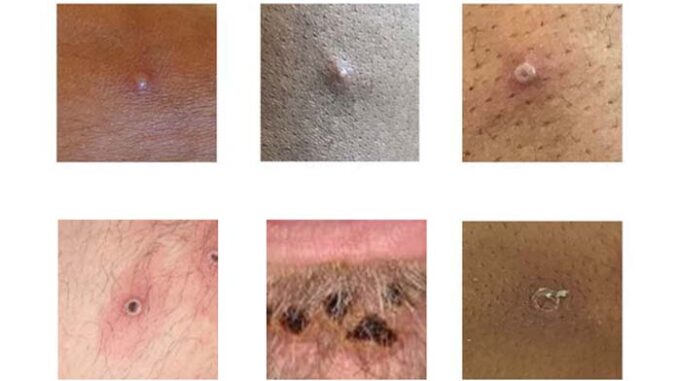
Monkeypox is a rare disease caused by infection with the monkeypox virus. Monkeypox virus is part of the same family of viruses as smallpox. Monkeypox symptoms are similar to smallpox symptoms, but milder; and monkeypox is rarely fatal. Monkeypox is not related to chickenpox. – CDC
The Pima County Health Department (PCHD) and Arizona Department of Health Services (ADHS) have identified the state’s first probable monkeypox case beyond the Phoenix area.
Arizona has one confirmed and seven other probable cases pending confirmation from the Centers for Disease Control and Prevention (CDC), all of them in Maricopa County.
Vaccine provided by the federal government is available for close contacts of cases, and monkeypox can be treated with available antiviral medicines. Consult your health care provider if you have symptoms such as a rash, fever, or swollen lymph nodes.
Most people are currently at low risk of contracting monkeypox. Transmission typically requires skin-toskin contact, direct contact with body fluids, or prolonged face-to-face contact. Monkeypox infections are typically not severe; symptoms are usually similar to the flu with a rash and resolve within 2-4 weeks.
Testing at the Arizona State Public Health Laboratory returned a presumptive positive result for the Pima County case, which involves a man under 40 who is in isolation. Confirmatory testing is underway at the CDC.
“The most common way the virus is transmitted is skin to skin,” said Pima County Health Department Director Dr. Theresa Cullen. “The odds of someone getting monkeypox without having direct contact with an individual that has monkeypox are miniscule, and I do not want people to be worried about that. The County has a robust response available, and we’re working closely with the state and the CDC.”
Monkeypox is a rash that can look like pimples or blisters on the face, the inside of the mouth, hands, feet, chest, genitals, or anus. Infection typically starts with a fever and can be accompanied by chills, headache, muscle aches, swollen lymph nodes, and fatigue.
“ADHS is coordinating with federal partners and local health departments to identify new cases and request vaccine,” said Don Herrington, interim ADHS director. “We also are encouraging health care providers to be on alert for patients experiencing rashes and other symptoms that could indicate monkeypox.”
To help prevent the spread of monkeypox and other viruses, wash your hands frequently and stay home if you feel ill.
